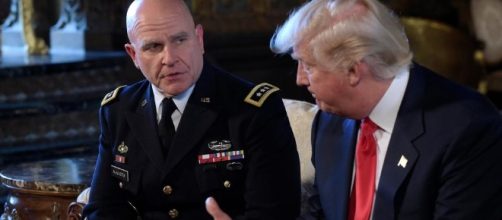Recently President Donald Trump has named Lieutenant General Herbert Raymond McMaster as his new national security adviser. A 54-year-old hero of the Iraq war, military personnel, almost without practical experience in Washington, replaced Michael Flynn's office, who had left his post with a huge scandal.
“He’s a man of tremendous talent and tremendous experience. He is highly respected by everyone in the military, and we’re very honoured to have him" - Trump announced in Palm Beach, Florida, of McMaster.
"Clean, Build, & Rebuild"
General McMaster came up with the so-called strategy "Clean, keep, rebuild", which was used as a basis for the further stabilization of Iraq campaign in 2007-2008.
He is considered a major expert in military affairs and a skilled strategist who made an impact on the Persian Gulf and Iraq resolutions. However, unlike many other officers, he has no experience in the Pentagon and other government agencies in Washington, which could become a challenge for his new post.
National Security Advisor has traditionally played the role of intermediary between the departments. MacMaster takes a post at a stressful time when the country faces many security challenges - from terrorism and the deterioration of relations with Iran and North Korea to Russian intervention in the US presidential election.
A political science professor at Duke University - Peter Feaver expects that MacMaster will take a sceptical stance toward Russia as Moscow is considered to be a serious potential threat to US security.
Moreover, a similar scepticism will target an Iran problem.
In 2015 McMaster accused Russia of conducting a hybrid war and proposed to apply the principle of "containment at the forefront" in connection with the events in the east of Ukraine.
First among equals
In 2012, McMaster said that interest in military history had a significant impact on his career. He emphasized that despite the fact his work is related to the future of planning, some aspects do not change on the war.
The General noted that one of the fundamental mistakes in Iraq and Afghanistan operations was their plan to "achieve a certain political outcome, which would correspond to the vital interests of the United States."
He also admitted that any war in its nature - is a human activity, and no matter how advanced is the United States technologically, but human factor can't be avoided.
In 2015, McMaster pointed out the importance of understanding how to behave and interact people to predict the future, and possible military conflict.
General who dealt with planning and forming of military doctrine has noted in 2016 that the ability of many potential opponents is beyond the capacity of the armed forces of the USA. He said the US Army may be at risk of becoming too small to ensure the security of the nation.
Furthermore, McMaster noted that the US military begins to fall behind technologically, "tanks" Abrams "will soon be out of date, but they will remain a part of the armed forces for another 50-70 years."
Later, speaking to the Senate Committee on Armed Services, the general said that while the United States fought in Afghanistan and Iraq, Russia has studied the possibilities and shortcomings of American technology and initiated a large-scale and successful modernization program.

